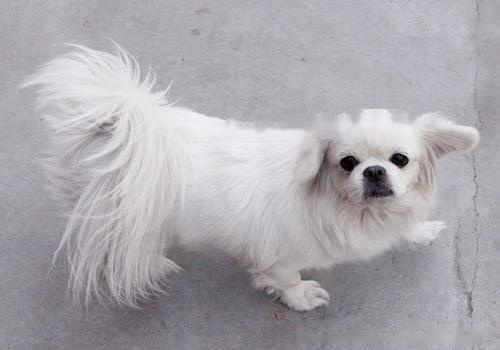Beware of dogs pneumonia due to seasonal changes, treatment of canine bronchopneumonia Bronchopneumonia is the inflammation of individual lobules or several pulmonary lobules, also known as lobular pneumonia; the alveoli are usually filled with epithelial cells, plasma Inflammatory exudative component composed of leukocytes. The clinical symptoms include relaxation fever, increased respiratory rate, cough, and localized pneumonia in the lungs.

(1) Secondary to cold and flu, imbalanced feeding and management, and stimulation by physical and chemical factors, the synthetic resistance is low, which is a A variety of bacteria caused an opportunity, such as Pasteurella, pneumococcus, streptococcus, staphylococcus and other infections.
(2) Parasitic etiology, Ascaris larvae damage the alveoli and bronchi during the migration process in the body.
(3) Secondary factors, such as colds, adenovirus, canine distemper, infectious hepatitis and inflammatory transfer of other tissues and organs, can all lead to pneumonia.
[Symptoms]
The symptoms of acute bronchitis, runny nose, dry cough, and bronchial sounds were present at the beginning of the disease. With the development of the disease, the general condition deteriorates, the spirit is depressed, the appetite decreases or does not eat, the body temperature rises to 39.54 degrees, it is flaccid fever, dyspnea, the frequency increases, the conjunctival cyanosis, the sunken eyeball, and dehydration.
Lung auscultation, lesions, alveolar sounds diminished, crepitus audible, and sounds in healthy areas.
Blood changes, total leukocyte count, and neutropenia, with left shift of the nucleus. X-ray examination showed thickening of lung markings and patchy shadows.
【Treatment】
(1) Penicillin 50,000 units/kg body weight, streptomycin 30,000 units/kg body weight, dexamethasone 0.1- 0.3 mg/kg body weight, intramuscular injection after mixing, 2 times/day for 5-7 days.
(2) Tetracycline 10-15 mg/kg body weight, dissolved in 5% glucose, intravenous injection, 2 times a day. Or Pioneeromycin 56 mg/kg body weight, dexamethasone 0.2 mg/kg body weight, mixed intramuscular injection, 2 times/day.
(3) Supportive therapy, 5% glucose saline 15-30 ml/kg body weight, 5% sodium bicarbonate injection 1-2 ml/kg body weight, mixed intravenous infusion.
(4) Sputum antitussive, ammonium chloride 50 mg/kg body weight, Kebiqing 2.5 mg/kg body weight, orally twice a day. Asthma can be relieved with aminophylline 10-15 mg/kg body weight, orally 2 times a day.
(5) Ephedrine should be taken orally when breathing difficulties and heart failure. 5-15 mg each time. Aminophylline, 10 mg/kg body weight, over or intravenously every 8 hours. For breathing difficulties caused by hypoxia, oxygen inhalation should be given. Anorexia, give intravenous injection to supplement body fluids and nutrition.
![[Dog Training 5] The training method of pet dog dining etiquette](/static/img/12192/12192_1.jpg)




